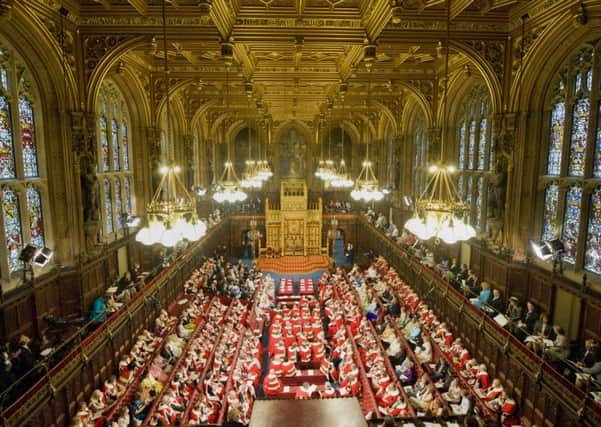David Maddox: Lords reform may need to be forced


To say the House of Lords has had its day is like suggesting that trying people for witchcraft is a bit of out date. The main difference is that while the witchcraft law has been abolished despite somehow managing to still be around until the 1940s, the equally medieval concept of the great and the good, English bishops and people who inherit titles sitting in parliament without asking any voters, is still here.
But the well-documented extra curricular activities of former Labour peer Lord Sewel and questions over £1.6 million being paid to peers who could not even be bothered to speak in debates have again thrown up questions about the future of the House of Lords, just over 100 years after the Liberals first mulled over scrapping it.
Advertisement
Hide AdAdvertisement
Hide AdThe main difference this time is that the state of the Palace of Westminster has provided a historic opportunity to finally replace the Upper House. The favoured view on what to do about overhauling the crumbling parliamentary estate is to empty the buildings in stages, and do the repair work over 11 years. This would almost certainly mean that the Lords would be removed and asked to meet elsewhere for 11 years while MPs switch between the Commons and Lords facilities, providing a chance to rethink.
Already some imaginative ideas are coming out. Scottish Labour leadership hopeful Kez Dugdale suggests moving the Lords out permanently and having an elected revising chamber in Glasgow.
This could link in with another idea to provide a solution for the single camera legislative chambers in the UK – Holyrood, the Welsh Assembly and Northern Irish Assembly – which in the last year between them produced 35 per cent of all new laws. A revising chamber outside the Westminster bubble would be more acceptable, and if its election was based on English regions and the nations then the Scottish senators could potentially also consider Holyrood legislation as well as UK bills.
There are also debates over how it should be elected, with some sort of regional proportional representation generally favoured. But one proposal is for the candidates who come second in constituencies to get a seat in a revising chamber. A House of Losers doesn’t have a great ring to it although it would make safe seats more interesting.
But while all these issues are being discussed, the likelihood is that a Tory government will resist change and create even more peers to try to gain a majority in the Lords too. The question now is how change is forced and for that to happen maybe SNP MP Angus MacNeil’s proposal of all parties not nominating peers and undermining the institution’s legitimacy could work. If only Tories want seats, then maybe the public will agree enough is enough.